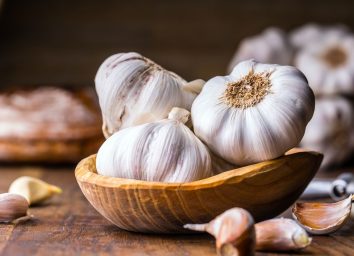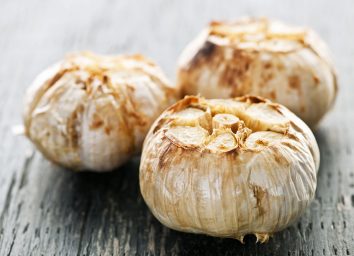What Happens to Your Body When You Eat Garlic
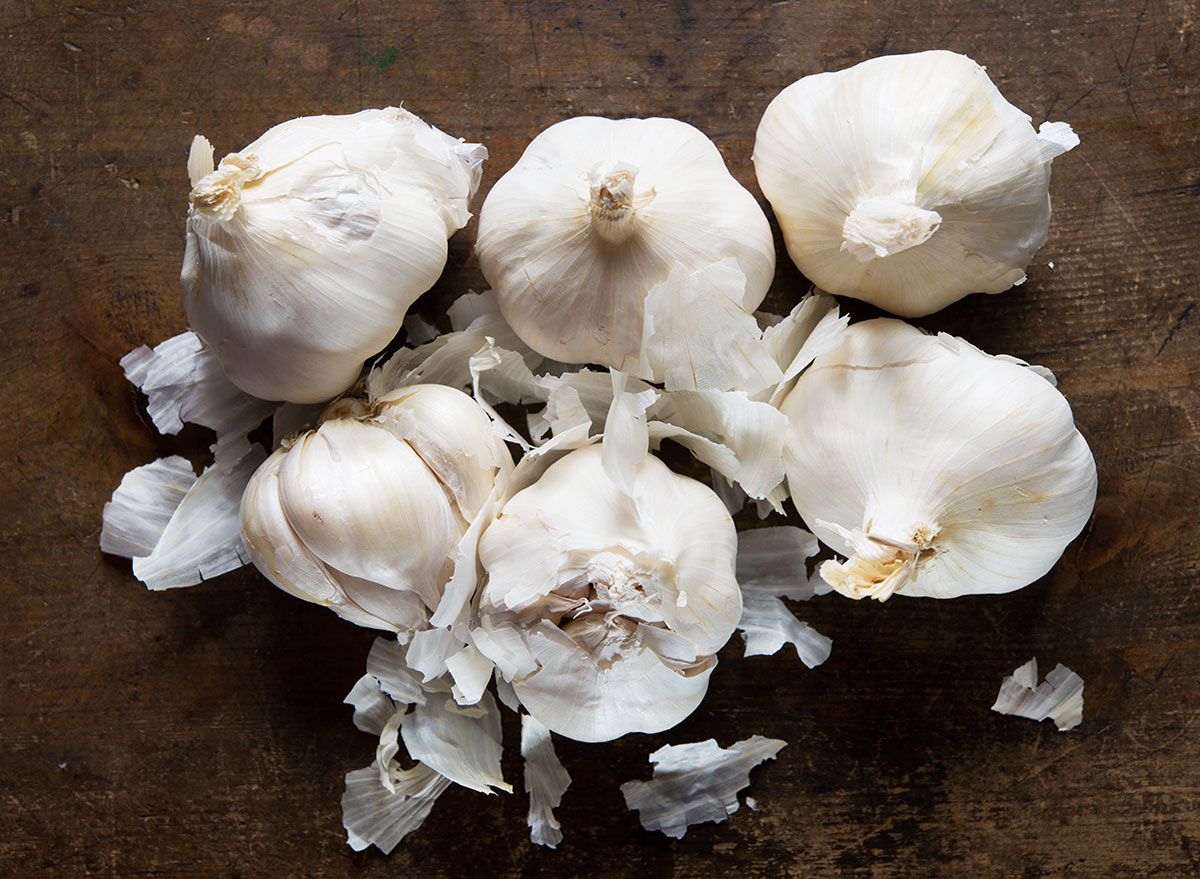
Garlic is one of those rare and wonderful foods that's not only extremely flavorful, but also almost unequivocally healthy. You can feel good about loading up on garlicky veggies, piquant bruschetta, or creamy hummus just about any time (except maybe right before a date)! But what exactly happens to your body when you eat garlic?
Used for centuries in folk medicine to treat a number of health complaints, garlic has a long history as a home remedy. These days, science shows its benefits are based on solid evidence. Check out these six things that can happen when you eat garlic. And for even more healthy tips, be sure to check out our list of The 7 Healthiest Foods to Eat Right Now.
You may reduce your blood pressure.

Olive oil gets plenty of glory for being the heart-healthy boss of a Mediterranean diet, but garlic is another Mediterranean superstar for cardiovascular health. Studies have linked garlic supplements to reduced blood pressure, especially in people with hypertension.
So if this is true of supplements, what about the fresh stuff?
"Garlic supplements have significantly higher amounts of allicin, the active compound in garlic that's responsible for many of its health benefits," says dietitian Anne Danahy, MS, RDN, author of The Mediterranean Diet Cookbook for Two. "Still, if you like garlic, it's a good idea to add it to your meals whenever possible. Studies show people who eat normal amounts of garlic on a regular basis have a lower risk of heart disease."
Get even more healthy tips straight to your inbox by signing up for our newsletter!
You could lower your cholesterol.
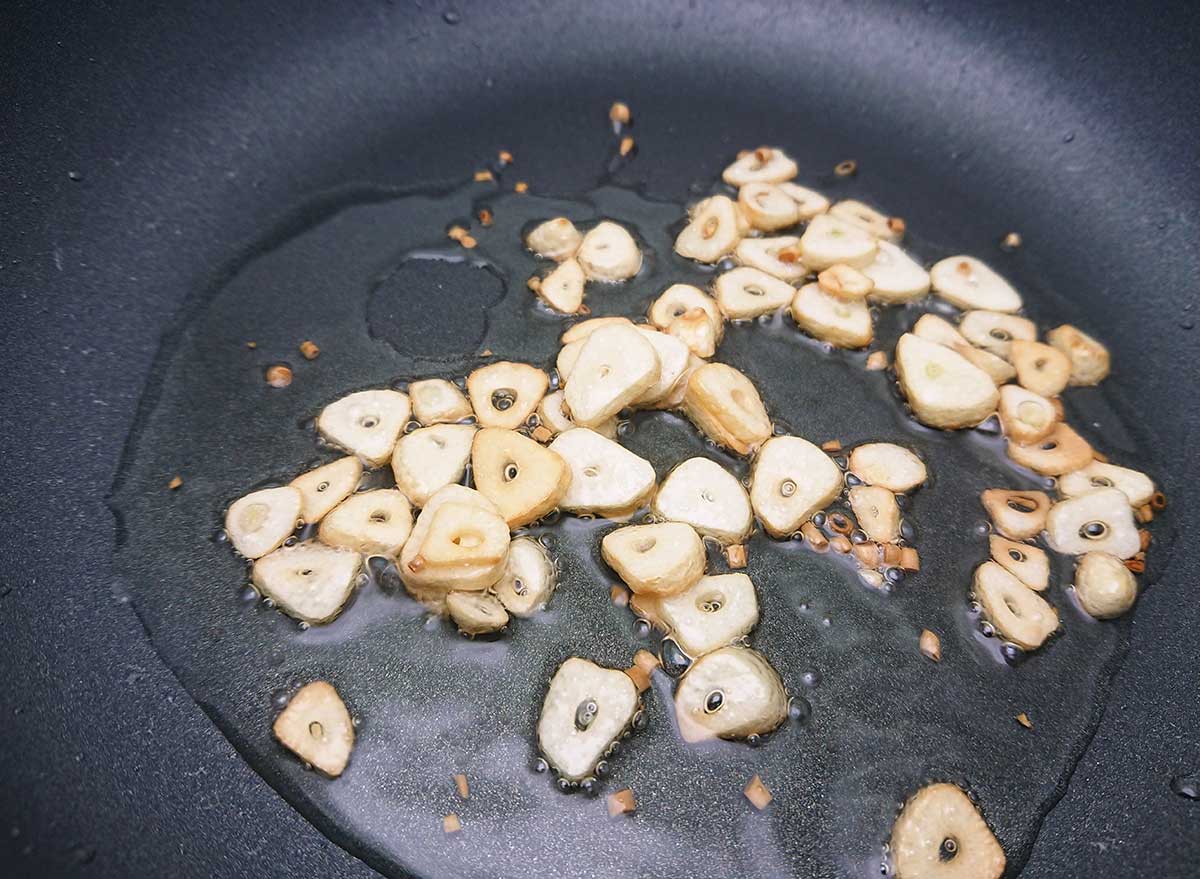
Lowering blood pressure is only part of the story of garlic's effects on the cardiovascular system. Using the spicy cloves in your cooking may also bring down your cholesterol. A 2013 scientific review concluded that the allicin in garlic could help reduce blood lipids, which include cholesterol and triglycerides. The review found other positive effects of garlic on heart health, too, including relaxing blood vessels and preventing abnormal enlargement of the heart muscle.
For maximum benefit, Danahy encourages incorporating garlic into meals with other good-for-you ingredients.
"Garlic is a component of the Mediterranean diet, so eating more of it in combination with olive oil, vegetables, fish, legumes, etc. further reduces cardiovascular disease risk," says Danahy.
Don't miss the one critical step to soaking up garlic's health effects in cooking.
You can soothe tooth pain.

Garlic could do more in your mouth than just please your taste buds. Placing fresh-sliced garlic on a painful tooth may tide you over until a dentist's visit.
Chewing on fresh garlic releases its all-important active compound, allicin. Once released, allicin's antimicrobial ability can get to work eliminating harmful bacteria that may be at the root of toothaches. Try munching on a clove or two for a bit of relief.
You might reduce the risk of some cancers.
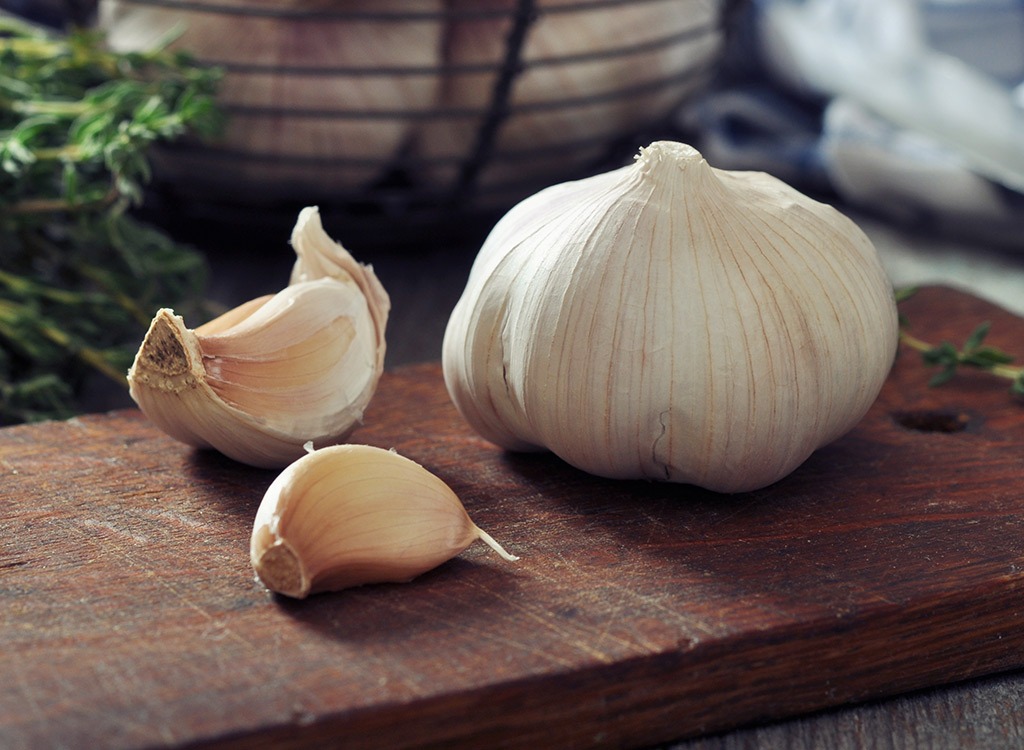
The interplay between diet and cancer is always a hot topic—and garlic is at the forefront of much of this food-as-medicine research. Numerous studies have found links between eating the tasty aromatic and preventing the Big C. In particular, research shows promising results connecting garlic to anti-tumor activity in cancers of the stomach, prostate, and colon.
To consume enough garlic for this (and other) health benefits, Danahy recommends roasting the entire bulb.
"My favorite way to use lots of it is to roast it. I love to just roast the heads along with a drizzle of olive oil and squeeze them out when they're soft and caramelized." Check out our recipe for roasting garlic to perfection!
You'll boost your immune system.
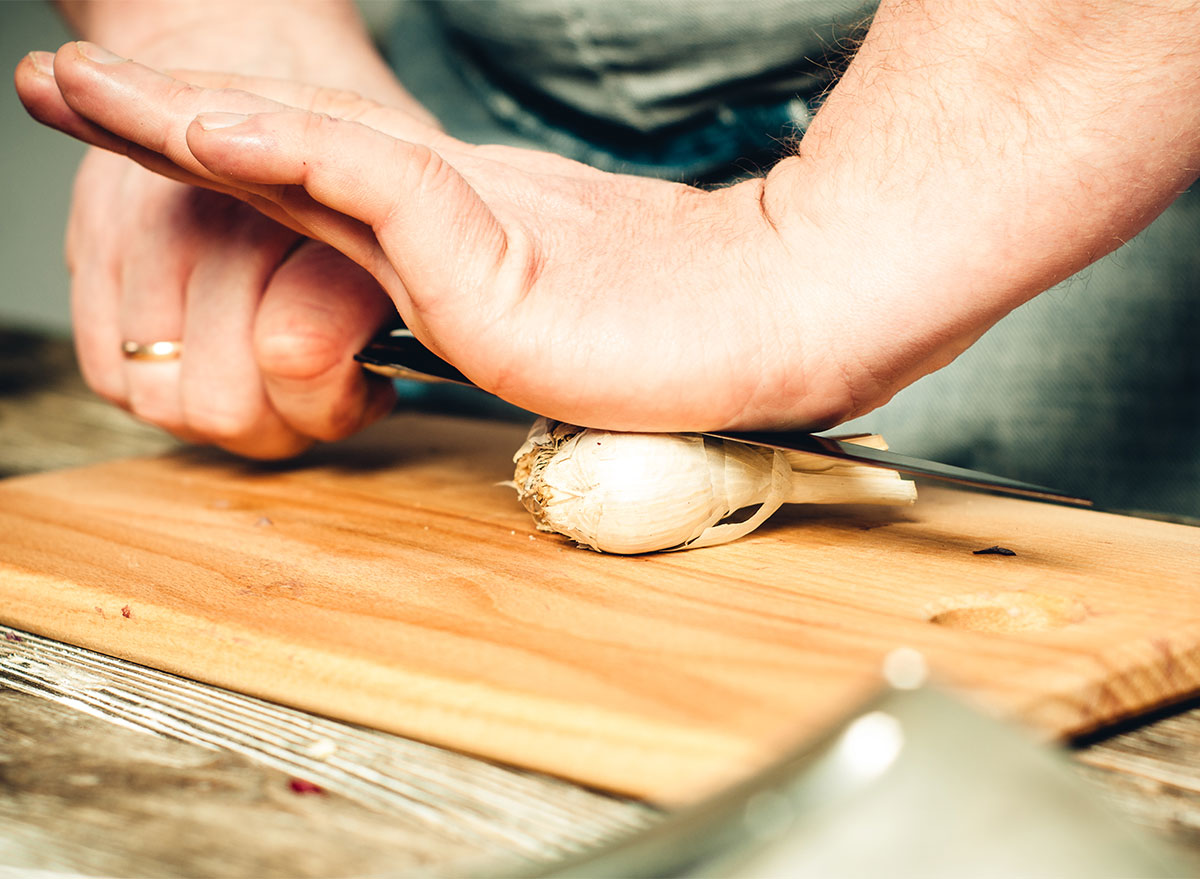
A virus or infection got you down? You may have considered garlic as an all-natural home treatment—and for good reason! Its antiviral, antibacterial qualities aren't old wives' tales. In fact, these powerful properties are among garlic's most widely studied health benefits, with evidence that it can fight viruses, bacteria, and even fungi.
And take note, cold and flu sufferers! One study found that supplements of aged garlic extract reduced the severity of cold and flu symptoms, while another indicated it could help prevent coming down with a cold in the first place.
You might experience indigestion.
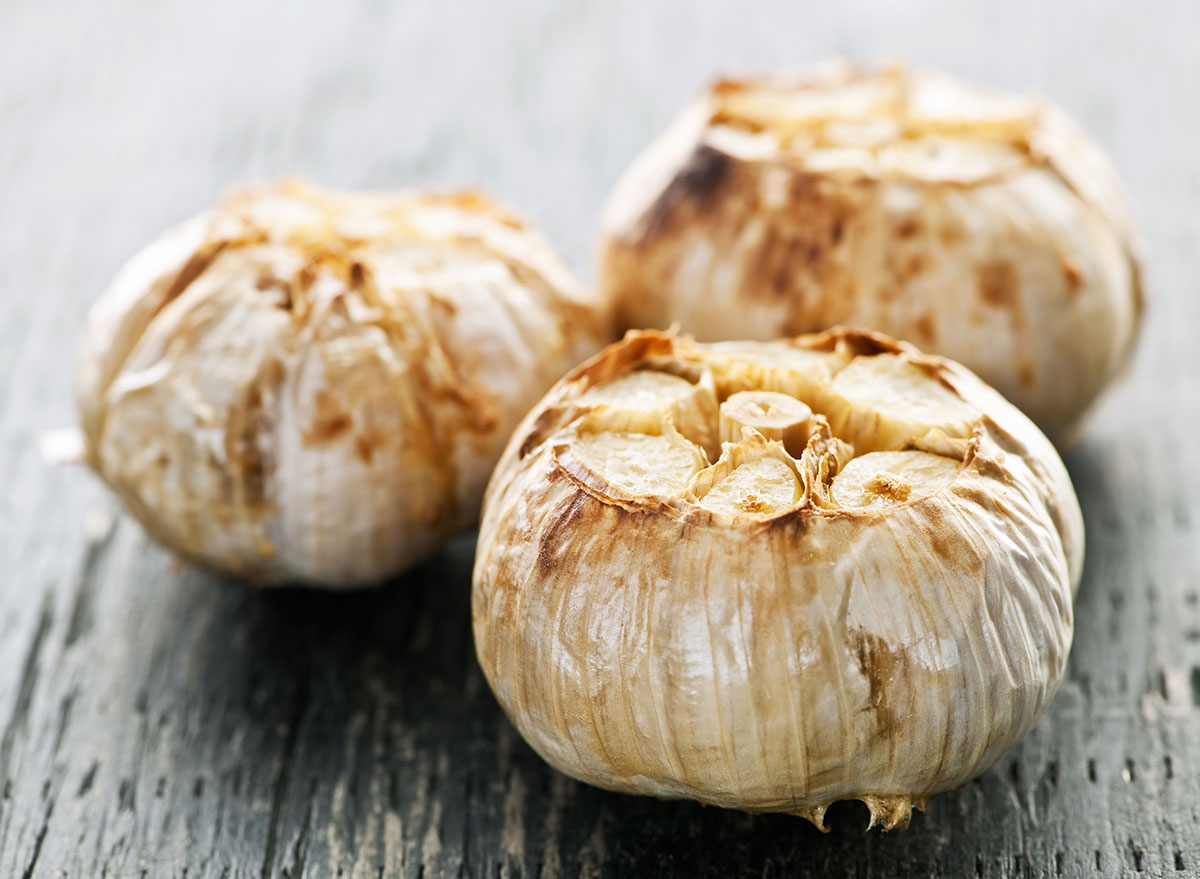
Despite garlic's impressive list of benefits, there might be a limit to how many cloves you should devour in a sitting—and not just for the sake of your breath. For some people, too much garlic could lead to digestive troubles.
"[Large amounts] might cause gas, bloating, or upset stomach," says Danahy.
If you've ever had a bout of indigestion after one too many slices of garlic bread with pesto, it might be best to scale back. Otherwise, dig in! Keeping fresh garlic on hand will enhance flavor and nutrition in all sorts of delicious dishes.
Once you've had your fill, find out how to get rid of garlic breath in a flash.
